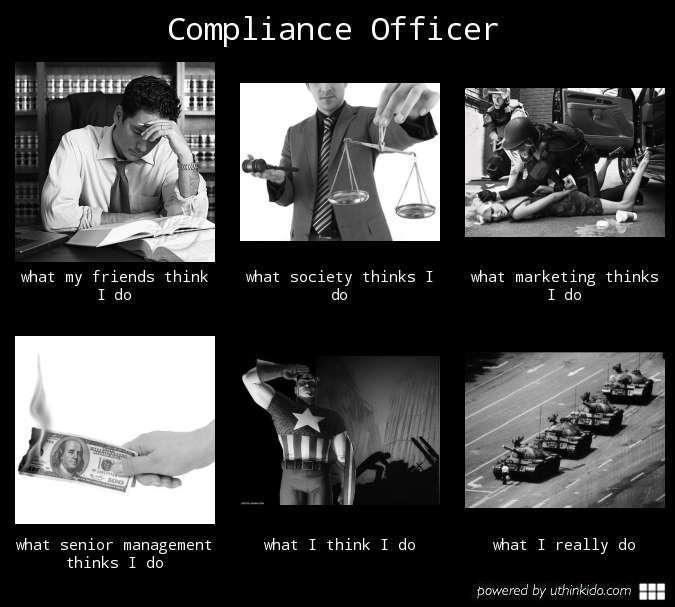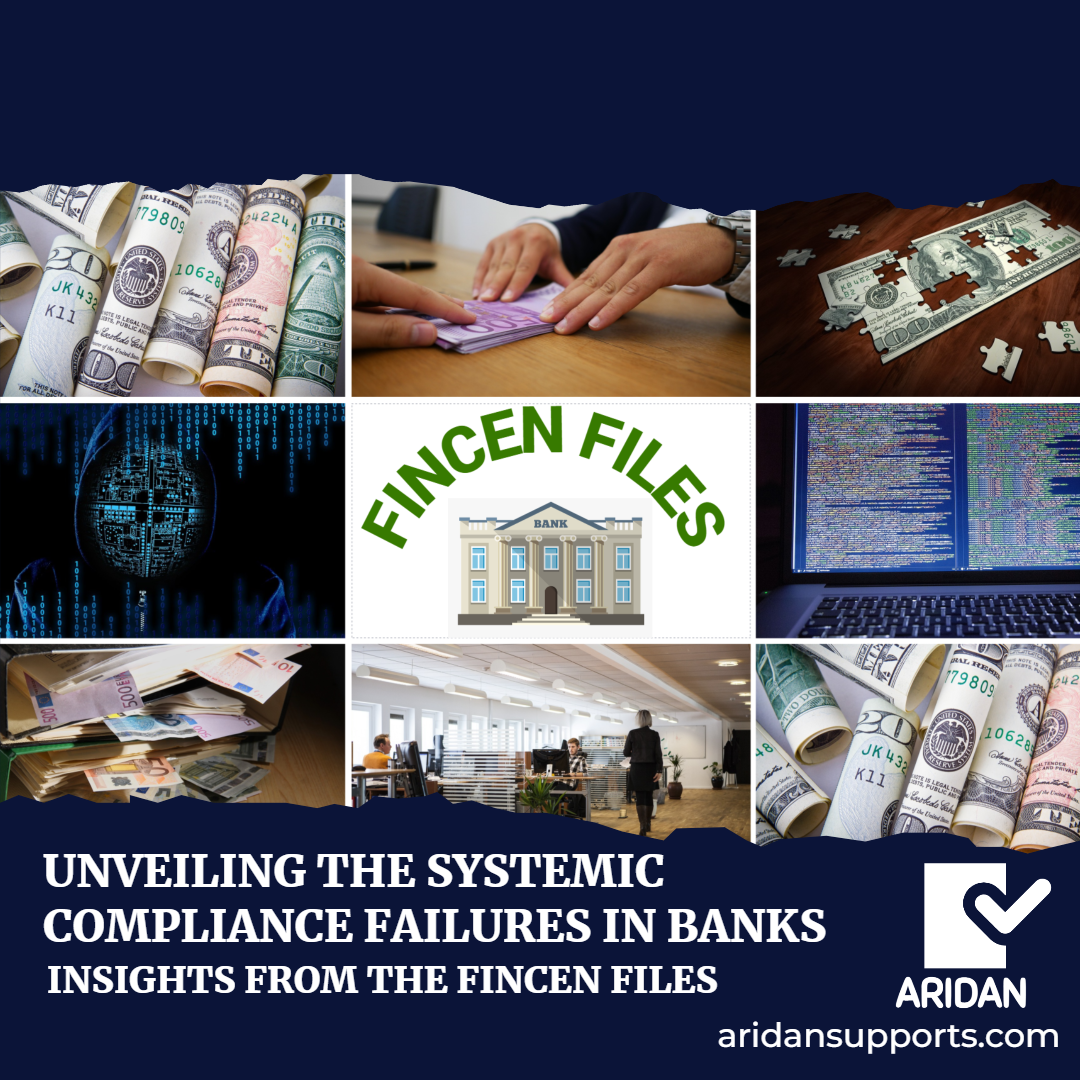The FinCEN Files, a trove of leaked documents, have once again brought to light the systemic failures in compliance at major banks worldwide.
The files, obtained by BuzzFeed News and shared with the International Consortium of Investigative Journalists (ICIJ), reveal how banks have been complicit in facilitating money laundering, terrorism financing, and other illicit activities. The FinCEN Files were published on September 20, 2020.
The revelations were not new. For years, banks have been fined billions of dollars for failing to prevent money laundering and other financial crimes. Yet, despite these penalties, the problem persists. The FinCEN Files showed that banks continue to prioritize profits over compliance, turning a blind eye to suspicious transactions and enabling criminals to launder money with impunity.
Deutsche Bank, Bank of New York Mellon, Standard Chartered, JPMorgan, and Barclays are the five main financial institutions in the reporting so far. In total, “nearly 90” institutions were mentioned in the documents, according to BuzzFeed News. Each bank released a statement defending itself, all of which can be read here. No firm commented on specific instances alleged by the documents.
In this article, we will explore the impact of the FinCEN files on the role of the compliance officer, the KYC procedures, law enforcement involvement, data protection issues, the shell company issue, transparency, and accountability in the financial industry.
THE ROLE OF COMPLIANCE OFFICER
One of the key findings of the FinCEN Files is the role of compliance officers in these failures. Compliance officers are responsible for ensuring that banks comply with anti-money laundering (AML) and know-your-customer (KYC) regulations.
However, the leaked documents show that compliance officers often lack the resources and support needed to do their jobs effectively. They are often overworked and underpaid, with little authority to challenge senior management decisions.
The compliance officer’s primary responsibility is to ensure that a bank or other financial institution adheres to laws and regulations. However, this often proves challenging, particularly in combating money laundering, where banks frequently fall short. The FinCEN Files provide substantial evidence to support this long-standing issue.

THE KYC CHALLENGE
The ‘Know Your Customer’ (KYC) principle remains a focal point in the financial sector, yet its traditional methods, such as checklists, are proving inefficient.
In many developed European countries, as many as one in five employees at large banks are now involved in due diligence or KYC processes. Despite this, for over twenty years, the Dutch supervisory authority (“De Nederlandse Bank”) and numerous other international supervisory bodies have rated the financial sector’s KYC practices as unsatisfactory.
Ultimately, it is the customer who bears the cost of these inefficiencies. However, beyond financial implications, society as a whole deserves a more effective approach to combating money laundering. This task often conflicts with other business goals, is not sponsored by the government budget, and is virtually impossible to fulfill effectively.
After all, a real money launderer will use several banks to conceal transactions. This means that an individual bank by definition has no overall picture of the money laundering risk posed by its customers. It goes into battle with one arm tied behind its back which seems like a never-ending challenge.
LAW ENFORCEMENT AND DATA PROTECTION
Another issue highlighted by the FinCEN Files is the lack of coordination between banks and law enforcement agencies. Banks are required to report suspicious transactions to the Financial Crimes Enforcement Network (FinCEN), a bureau of the U.S. Department of the Treasury.
However, the leaked documents show that banks often fail to do so, either because they are unaware of the suspicious nature of the transactions or because they fear reprisals from their clients.
The possible sharing of customer data with a bank with which that customer has no relationship is a new proposal from the Dutch government. Aside from any legal and data protection issues, this still means putting the cart before the horse.
This data then goes to a bank that does not know this customer. The risk of incorrect interpretation is high, and this proposal will lead to even higher costs.
SHELL COMPANIES
The FinCEN Files have shed light on the significant role of shell companies in enabling money laundering. These entities, which lack genuine business operations, are frequently employed to obscure the true ownership of assets.
The leaked documents have exposed how banks have been complicit in the process, opening accounts for shell companies and thereby enabling criminals to launder money through the financial system without detection.
This revelation underscores the need for greater scrutiny and regulation of shell companies. The ease with which these entities can be used to facilitate illicit activities highlights the importance of robust AML and KYC measures.
Banks and financial institutions must implement stringent due diligence processes to identify and prevent the misuse of shell companies for money laundering purposes.
THE REPERCUSSIONS OF THE FINCEN FILES
The FinCEN Files have ignited a demand for enhanced transparency and accountability within the banking industry. Lawmakers and regulators are advocating for more stringent regulations and steeper penalties for banks that fall short of meeting anti-money laundering (AML) and know-your-customer (KYC) requirements.
However, the issue extends beyond traditional banks. The FinCEN Files have revealed that other financial entities, including cryptocurrency exchanges and money transfer services, are also susceptible to money laundering and other financial crimes.
This broader scope of vulnerability underscores the need for comprehensive regulatory measures that encompass all financial institutions. The FinCEN Files have exposed the inadequacies of existing AML and KYC regulations, necessitating a reevaluation of compliance standards across the financial sector.
Regulators and industry stakeholders must work together to develop and implement robust frameworks that effectively combat money laundering and other illicit financial activities.
When BuzzFeed approached the Treasury for comment, the agency said “The unauthorized disclosure of SARs is a crime that can impact the national security of the United States, compromise law enforcement investigations, and threaten the safety and security of the institutions and individuals who file such reports”. The U.S. Department of Justice has been hard at work prosecuting those responsible for divulging the SARs and other documents. This illustrates the need for whistleblower laws that protect those who dare to shine light on wrongdoings.
FINCEN FILES IN COMPLIANCE TRAINING MATERIAL
The FinCEN Files, unlike the Panama Papers or Pandora Papers, have not gained significant popularity or been widely mentioned in compliance training materials within the financial industry even though they have very detailed examples of transactions that illustrate how potentially suspicious money travels around the world via networks of international and local banks.
The revelations from the FinCEN Files have the potential to damage the reputation of these institutions and undermine public trust in the financial system. This is largely due to the sensitive nature of the information contained in the FinCEN Files, which implicates major banks and financial institutions in facilitating illicit activities such as money laundering and terrorism financing.
As a result, many banks and financial institutions may be hesitant to acknowledge or discuss the contents of the FinCEN Files in their compliance training materials. Additionally, the FinCEN Files highlight the failures of compliance officers and the shortcomings of existing anti-money laundering (AML) and know-your-customer (KYC) regulations.
These revelations may be seen as a threat to the status quo within the financial industry, where compliance officers are often overworked and underpaid, and where banks prioritize profits over compliance. As a result, there may be a reluctance within the financial industry to address the issues raised by the FinCEN Files in compliance training materials, as doing so could require significant changes to existing practices and procedures.
A LIGHT ON ACCOUNTABILITY
The history of accountability for money laundering crimes in the financial industry especially in large corporations shows that it often falls on the lower-level employees rather than C-level management. Instead of terminating or canceling the banking license, the penalty is a fine that is often paid and a rebranding takes place continuing business as usual.
If money laundering detection is that important, the ultimate responsibility should be where it belongs, with the CEO. Then he cannot refer to a fellow director or the Head of Compliance if things go wrong. Compliance officers know that they are now often fighting an unfair battle.
However, a genuine passion for their profession and a commitment to ethical conduct often drive many compliance officers to go above and beyond their call of duty. Despite this dedication, they may sometimes be overwhelmed by the demands placed upon them.
FINAL THOUGHTS
The FinCEN Files have exposed the systemic failures in compliance at banks and other financial institutions. These revelations serve as a wake-up call for the banking industry, regulators, and law enforcement agencies.
A concerted effort must be made to strengthen anti-money laundering (AML) and know-your-customer (KYC) regulations, enhance coordination between banks and law enforcement, and hold banks accountable for their shortcomings in preventing money laundering and other financial crimes.
However, addressing these issues requires a fundamental shift in mindset. Compliance officers, who are tasked with ensuring that banks adhere to AML and KYC regulations, often rely on company-approved training materials for their latest updates.
This reliance on standardized training materials can lead to a lack of awareness of the latest developments in compliance, and compliance officers may not be incentivized to think outside the box or seek out additional information.
To truly address the systemic failures in compliance, compliance officers must be equipped with the latest information and are encouraged to think critically about compliance issues.
This may require a reevaluation of compliance training programs and a greater emphasis on ongoing education and professional development for compliance officers. Additionally, banks and financial institutions must prioritize compliance and ensure that compliance officers have the resources and support they need to effectively carry out their responsibilities.
Sources
Díaz-Struck. E, Armendariz. A, Reuter. D, Cosic. J, Kehoe. K, Torres.M, Williams. M, and Fiandor Gutiérrez. M. September 20, 2020. From a jumble of secret reports, damning data on big banks and dirty money:A massive global research effort for FinCEN Files turned secret records into usable information exposing the futility of U.S.-led anti-money laundering efforts. The International Consortium of Investigative Journalists. Last accessed February 21, 2024.
ICIJ / BuzzFeed News. September 20, 2020. An ICIJ investigation: FinCen Files. Last accessed February 21, 2024.
ICIJ. Explore the FinCEN Files data. Last accessed February 21, 2024.
U.S. Attorney’s Office, Southern District of New York. January 13, 2020. Former Senior Fincen Employee Pleads Guilty To Conspiring To Unlawfully Disclose Suspicious Activity Reports. Last accessed February 21, 2024.









